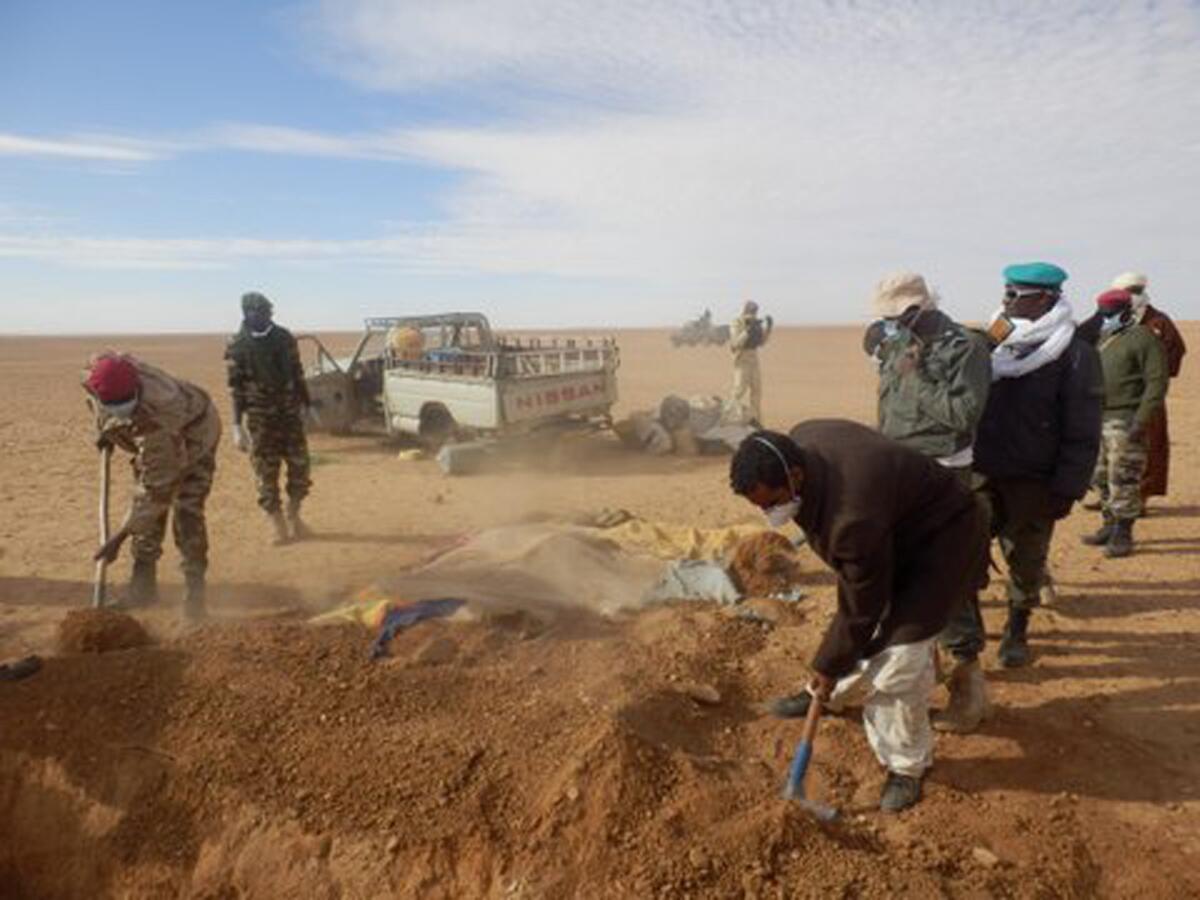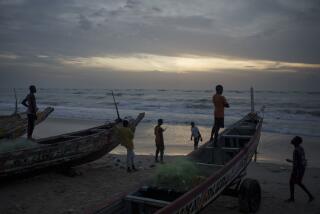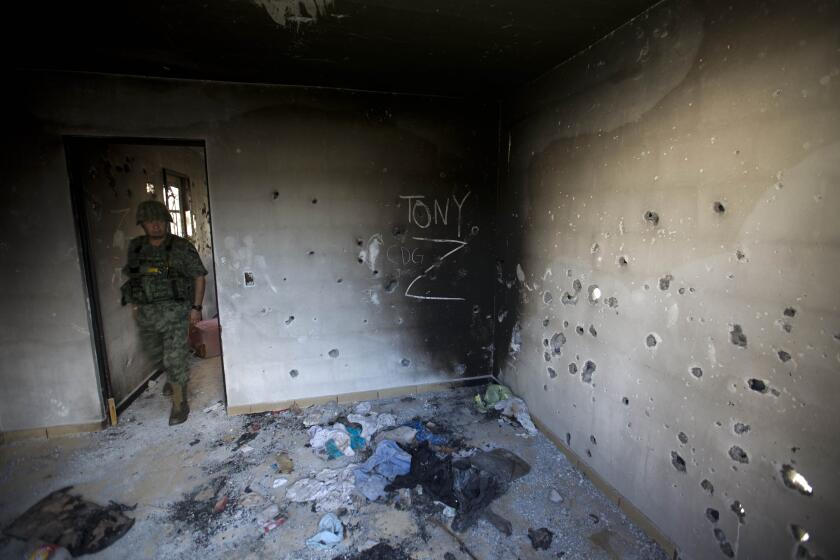Scores die of starvation, thirst in Niger’s desert on smuggling route

JOHANNESBURG, South Africa -- It’s a long, arduous and well-worn route. Hopeful Africans travel north through Niger, Mali and Algeria, crossing the Sahara desert to reach Europe, find work and send money home to their families.
The exodus often goes nightmarishly wrong for the migrants. They must trust their lives to unscrupulous smugglers. If someone hasn’t been paid along the route, they are sometimes abandoned by their driver. If a vehicle breaks down in the desert, there is no guarantee that help will ever come.
In the latest tragedy involving African migrants, 92 bodies were found in the desert of Niger, according to a humanitarian worker, after their two trucks broke down near the Algerian border.
The bodies were strewn across the desert, found where they fell in their death march to try to reach help. Most were women and children.
The whereabouts of their drivers was not known, according to authorities.
“It was horrific,” Almoustapha Alhacen, a rescuer from a humanitarian organization, told the Associated Press. “We found the bodies of small children who were huddled beside their dead mothers.”
The dead included 52 children, 33 women and seven men, he said. Some children were found alone.
Alhacen told Reuters news service that travelers are usually young men, not women traveling with children.
“It’s the first time I’ve seen anything like it. It is hard to understand what these women and children were doing there,” he said. It was not clear whether the group was headed to Northern Africa or planned to travel on to Europe.
Tens of thousands of African migrants travel the desert route each year, before taking boats to Europe.
The first truck reportedly broke down north of Arlit as it approached the Algerian border. The second truck returned to Arlit for a spare part, leaving the travelers in the desert. It too broke down before reaching Arlit.
It’s believed that the migrants waited for the truck to return for about five days and then set out looking for help or a water well.
Survivors of journeys interviewed by The Times in recent years offer terrible stories of setbacks, long waits without shelter, periods of hunger and thirst and dangerous border crossings at night. They arrive at the northern tip of Africa and at night can gaze across a narrow stretch of water and see the car headlights of the people in Europe.
By the time Nigerien authorities learned of the latest disaster, many of the women and children may have been dead or dying in the desert. Authorities found out about the breakdown only after two survivors staggered out of the desert and arrived in Arlit days later.
In the days that followed, another 19 people managed to reach Algeria. They were sent back to Niger.
The bodies were scattered over a wide area with a 12-mile radius, suggesting that many of the migrants became lost trying to walk to the Algerian border, which was just six miles away from where the migrants were abandoned, Alhacen told the Associated Press.
The tragedy comes as European leaders grapple with a migration crisis that has been going on for years. Thousands of people have died, often while traveling to Europe in small wooden boats.
The situation goes unacknowledged for the most part, but hit the headlines in early October when a boat carrying migrants capsized near the Italian island of Lampedusa and at least 365 people drowned.
After the boat tragedy, Italy called on other European nations to help it deal with the crisis. In the past, Europe’s approach has been to pick up migrants, process them and send them home by air in a bid to discourage economic migration.
Garba Makido, governor of Agadez province in Niger, told AP the migrants set out late last month along the well-established smuggling route.
“This is a true tragedy. The prosecutor has opened an investigation and we plan to do everything we can to find the truck drivers,” he said.
[For the record, 2:02 p.m. PDT Oct. 31: An earlier version of this post incorrectly identified the authorities as Nigerians rather than Nigeriens.]
ALSO:
Israel plans massive settlement push
Pakistan’s new low numbers on drone civilian deaths stir debate
Syria sites for making chemical weapons ‘inoperable,’ inspectors say
Twitter: @latimesdixon
More to Read
Sign up for Essential California
The most important California stories and recommendations in your inbox every morning.
You may occasionally receive promotional content from the Los Angeles Times.










